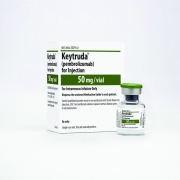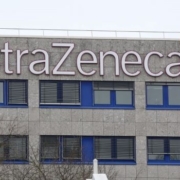The U.S. Food and Drug Administration approved the expanded use of Bristol Myers Squibb’s cancer drug Opdivo along with chemotherapy as treatment that patients with an aggressive form of lung cancer receive before surgery.
After Karyopharm Therapeutics Inc. submitted Phase III data from the Massachusetts-based pharmaceutical company’s SIENDO study on selinexor, the U.S. Food and Drug Administration said it was unlikely to support a supplemental New Drug Application approval for the drug.
FDA’s ODAC Says Lilly & Innovent Must Run U.S. Trial
Business, Checkpoint Inhibitors, China, Clinical Trial Endpoints, Clinical Trials, Ethnicity, FDA/Regulatory, Lung Cancer, Oncologic Drugs Advisory Committee (ODAC), PD-1 Inhibitors, Primary Endpoints, Progression-Free Survival (PFS), R&D, Therapeutics, United StatesThe Food and Drug Administration’s Oncologic Drugs Advisory Committee (ODAC) recommended that Eli Lilly and Co. and Innovent Biologics Inc. conduct a clinical trial applicable to the U.S. population for the lung cancer drug sintilimab. The U.S. FDA previously raised concerns over a clinical trial conducted entirely in China focused on a single ethnic group.
Pivotal Phase 3 Data for Keytruda in High-Risk Early-Stage TNBC Published in the New England Journal of Medicine
Blockbusters, Chemotherapy, Clinical Trials, Event-Free Survival (EFS), Keytruda, Neoadjuvant Chemoradiotherapy (CRT), New England Journal of Medicine, New Indications, R&D, Triple Negative Breast Cancer (TNBC)Merck announced the publication of results from the Phase 3 KEYNOTE-522 trial in the Feb. 10, 2022 edition of the New England Journal of Medicine. Results showed that neoadjuvant Keytruda in combination with chemotherapy followed by adjuvant Keytruda as monotherapy, significantly prolonged event-free survival compared with neoadjuvant chemotherapy followed by adjuvant placebo in patients with high-risk early-stage triple-negative breast cancer (TNBC).
Medable Launches Partner Network to Accelerate Innovation and Simplify Deployment of Decentralized Clinical Trials
Business, CVS Health, Data, Decentralized Clinical Trials, Direct-to-patient engagement, Health Technology, Innovation, Partnerships, R&D, Remote Site Access Technology, Software, TelemedicineMedable Inc., the leading software provider for patient-centered clinical trials, launched the Medable Partner Network – uniting a diverse ecosystem of technology, service, data, site, and direct-to-patient partners that work together to accelerate deployment of decentralized clinical trials.
2021 was an important year for the life sciences industry. From the continuing fight against COVID-19 to new companies emerging in exciting therapeutic areas to the people who mattered most, BioSpace looks at some of the biggest successes, most dramatic flops – and a few that fall somewhere in between.
The popularity of decentralized clinical trials (DCTs) is surging, especially among patients. Harnessing technology of all kinds, these trials provide an attractive alternative to the old-style, site-anchored system on which traditional clinical trials have rested. They also have the potential to provide better, more timely data since that data is primarily collected under real-life situations and often available more quickly to monitoring teams, according to Kristin Mauri, Director of Solution Services, Remarque Systems.
Researchers in Singapore developed the world’s largest and highest-resolution atlas of gastric cancer.
AstraZeneca shared positive results from the company’s TOPAZ-1 Phase III trial on Imfinzi (durvalumab) in increasing the chances for survival in advanced biliary tract cancer patients when combined with standard-of-care chemotherapy regimens.
Novartis said on Oct. 25 the company’s canakinumab drug failed in another clinical trial, missing targets to improve overall survival rates for lung cancer patients and prevent the progression-free survival of people with the condition.









